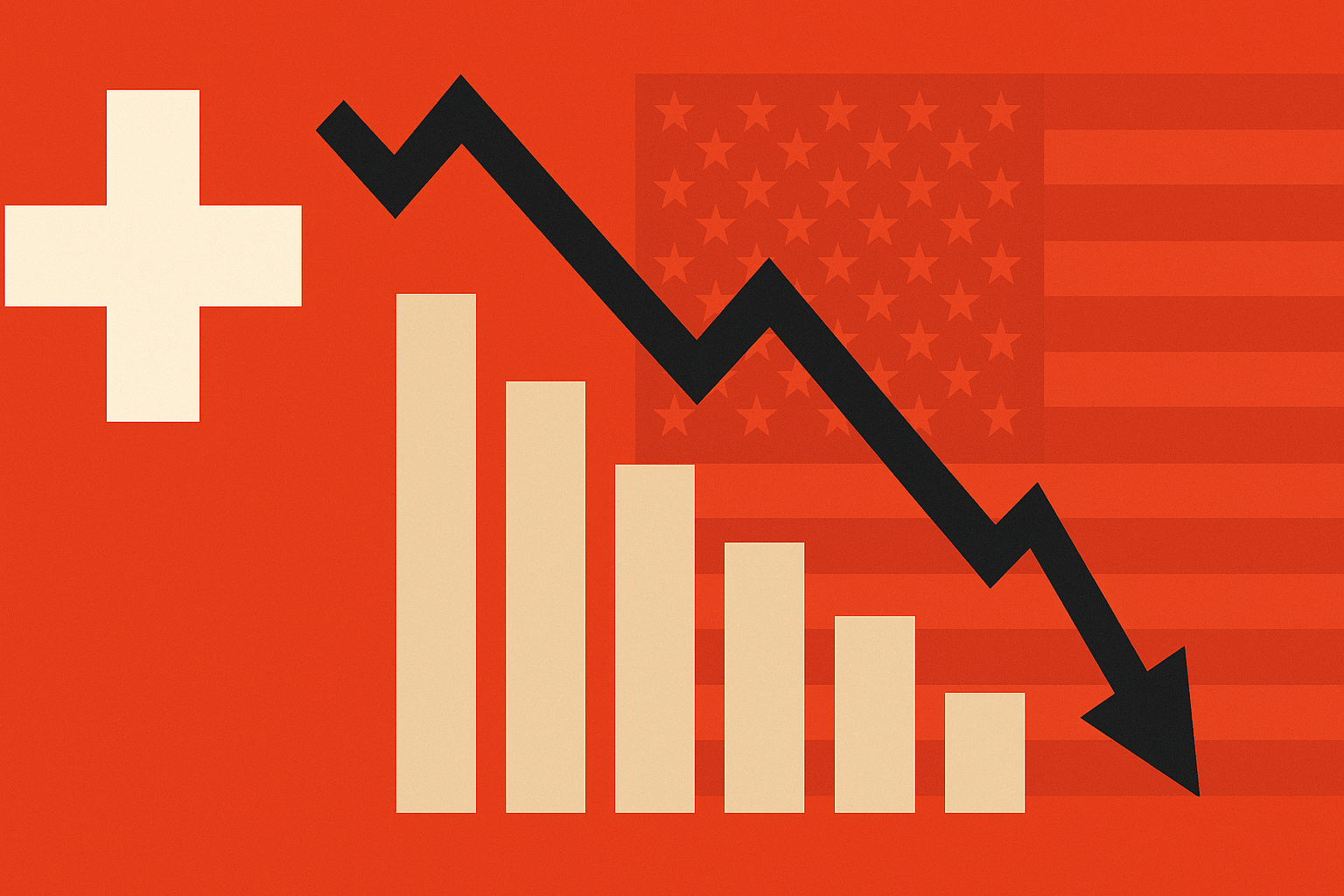Swiss stocks declined on Monday as investors responded to U.S. President Donald Trump’s unexpected announcement of a 39% import tariff on Swiss goods, one of the steepest levies imposed on any U.S. trading partner to date.
The Swiss Market Index (SMI) — the country’s primary stock benchmark — dropped as much as 1.9% in early trading, before paring losses to close down 0.2% for the day. Major Swiss companies felt the impact: UBS fell by 3.3% intraday before closing 0.7% lower, while Richemont, the luxury group, declined by 1.3%. Pharma giant Roche also slid 0.8%.
The announcement caught Swiss officials by surprise, especially since Switzerland is not a member of the European Union, which recently negotiated a 15% blanket tariff deal with Washington. The U.S. tariffs were announced late last week while Swiss markets were closed for National Day, making Monday the first day for financial markets to react.
Government and Economic Response
The Swiss government said it was prepared to present a more attractive trade proposal to the U.S. to help de-escalate the tariff standoff. Analysts from private bank Lombard Odier cut their 2025 GDP growth forecast from 1.1% to 0.9%, citing uncertainty surrounding Swiss-U.S. trade relations and the new levies.
“The longer such tariffs remain in place, the greater the risk to the Swiss economy,” the bank noted. “We expect Bern to accelerate negotiations with the Trump administration.”
The impact is particularly sharp because Switzerland is heavily reliant on U.S. exports, especially in the pharmaceutical sector, home to global leaders like Roche and Novartis. President Trump also issued demands for “binding commitments” from pharmaceutical companies to reduce prices for American consumers, putting additional pressure on Swiss drug manufacturers.
Currency and Monetary Policy Moves
The Swiss franc dropped another 0.4% against the euro on Monday, after falling 0.5% the previous Friday. Though the franc has strengthened significantly against the U.S. dollar this year due to investor uncertainty around Trump’s economic policies, the recent developments have caused a reversal in trend.
In response, the Swiss National Bank (SNB) cut its interest rate to zero in an effort to combat rising currency strength and persistent low inflation. Investors are now speculating that the SNB may adopt negative interest rates if deflationary pressures persist.
The yield on two-year Swiss government bonds — a key indicator of interest rate expectations — fell by 0.06 percentage points to -0.17%, marking the lowest level since mid-June.
Outlook
Economists warn that the situation could further destabilize Switzerland’s export-driven economy. Chris Turner, global head of markets research at ING, stated:
“If these tariffs stick, they will intensify the disinflationary pressures in Switzerland, keeping CPI near 0% year-on-year.”
As talks between Bern and Washington loom, investors and businesses alike are bracing for an uncertain period. The outcome could shape the trajectory of Swiss economic performance well into 2025.








